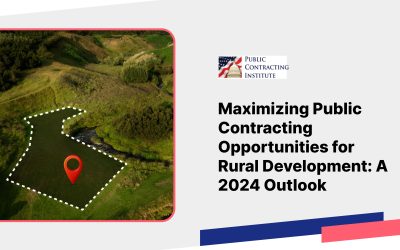Thirty-Nine in a Row!
During the past two-and-a-half years, 40 Organizational Conflict of Interest (OCI) challenges have been raised in protests before the Government Accountability Office (GAO). And – with the exception of one protest where the agency waived a potential OCI at the last minute, after receiving an unfavorable ADR “outcome prediction” – in every case the contracting officer determined that there was no disqualifying OCI, and in every case GAO upheld the contracting officer’s decision.[1] Every single time! Even Stephen Strasburg doesn’t strike out everybody. (Alas, especially this year)
It might even be said that OCI reversals have become as rare as leap days, since the last sustained OCI protest was Niksoft, issued on February 29, 2012. And in that protest, unlike the subsequent 40, the contracting officer had excluded the protester based on OCI grounds.
Why has this been happening? Has OCI become irrelevant? Are we back to the pre-CICA “good old days” (or “bad old days”) when the contracting officer was the OCI Sheriff, and whatever the Sheriff said was law?
Certainly the Court of Appeals directives in Turner, PAI, and Axiom – that “hard facts” (not mere innuendo or suspicion) are required before an OCI should be considered disqualifying or before a contracting officer’s decision should be overturned – have had an impact. GAO cites those cases in almost every OCI challenge. Clearly, the legal bar has been raised.
But I would also contend that contracting officers are doing a better job – although not always on the first try.
Let’s delve a bit deeper, and dispel some myths:
a) Is GAO merely rubber stamping CO decisions? Not really – in these decisions, GAO typically includes a review and analysis of the CO’s investigation and decision that is more than two pages long.
b) Are contracting officers rejecting OCI claims summarily, without analysis? No – the length of the GAO review reflects the extent of the detailed investigation and analysis done by the contracting officers before making the OCI determination. While one might question a few of those determinations on the merits, it is clear that they reflect serious analysis.
So if the odds are so long, why are protesters still bringing OCI challenges at a record pace? (22 OCI challenges were brought in 2012 and 20 in 2013 – a higher rate than ever before.) Maybe it’s because many contracting officers are not getting it right the first time. At least nine OCI challenges followed prior agency “corrective actions” that (at least temporarily) resolved earlier OCI protests. And many other contracting officer determinations that GAO ultimately endorsed (or at least deferred to) were made after, not before, OCI protests were filed.
So yes, contracting officers are getting it right, but sometimes only because protesters are forcing them to.
To sum it up:
1. Losing offerors are still raising OCI challenges. They have not been discouraged by their long losing streak – at least not yet!
2. Contracting officer OCI decisions are being upheld, but in many cases only after issues that might have been resolved earlier are addressed in protests.
Does this winning record represent success? Well, a protest that is ultimately denied will not upend the contract award. But it will delay performance while the protest is pending. So if you are a contracting officer, the best outcome is not just to have a high winning percentage when you are challenged. The best outcome – the real goal – is to take the steps necessary to avoid being challenged. In the bid protest arena, a batting record of 39 hits in 39 (or 40) at bats is not as good as a record of zero hits and zero at bats.
So:
– If you’re a contractor, think twice before you spend resources on an OCI protest, unless you have “hard facts” that demonstrate a violation;
– If you’re a contracting officer, be proactive. Address OCI issues fully and early; don’t wait for someone to protest before doing the analysis; and
– Whether you are contractor or a contracting officer, be ready to learn about the new FAR OCI regulations that are anticipated at any moment, or at least at any year.
Want to learn more? Take the OCI class!
[1] Disclaimer: these numbers reflect only GAO protests. They do not include reported protests brought at the Court of Federal Claims, which have not been quite as one-sided. Nor do they include agency protests, which are not publicly reported.


